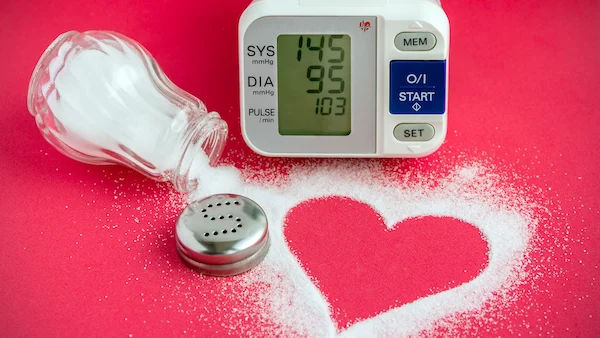- male
- 60 Years
- 29/01/2025
I'm trying to understand the results of my recent 2D echo and colour Doppler test. It mentioned things like LEFT VENTRICLE ASH, TRILEAFLETS, and an AORTIC VALVE that's thickened. It also noted some stuff about COLOUR DOPPLER and something called AV GRDT 5mmHg AR GRADE 1. They concluded I have HYPERTENSIVE HEART DISEASE and ASYMMETRICAL SEPTAL HYPERTROPHY among other things. They said I have a NORMAL LV SYSTOLIC FUNCTION with an EF of 64%, but I'm not quite sure what that means. Given this, is my condition something thats curable or can be managed? Would surgery or implants help at all? I don't have diabetes and my heart rate stays around 50-60 bpm consistently. I've been on Zabeta X for nine years, then LODOZ 2.5 for a year, and now CONCOR 2.5 for the last 15 days. Also, I've been taking Restyl 0.5 at bedtime for 9 years. What should I consider doing next?
Answered by 1 Apollo Doctors
- Whether it is curablecontrolled? Based on the diagnosis of hypertensive heart disease, asymmetrical septal hypertrophy, sclerotic aortic valve with mild aortic regurgitation, and left ventricular diastolic dysfunction, these conditions can be managed and controlled with appropriate treatment and lifestyle modifications. While these conditions may not be completely curable, their progression can be slowed down and symptoms can be managed effectively with proper medical management. 2. Whether surgery or implants in any way will be of any help? In your case, since you have normal left ventricular systolic function and no regional wall motion abnormalities at rest, surgery or implants may not be necessary at this point. However, in some cases where there is severe aortic stenosis or regurgitation, surgical interventions such as aortic valve replacement may be considered. It is important to follow up with your cardiologist for further evaluation and to determine if any surgical interventions are needed in the future. 3. Your considered opinion, suggestion, solution? Considering your current medication regimen, it is important to continue taking Concor 2.5 as prescribed by your healthcare provider. Additionally, lifestyle modifications such as maintaining a healthy diet, regular exercise, managing stress, and avoiding smoking can help in managing your condition. Regular follow-up visits with your cardiologist are essential to monitor your heart health and adjust your treatment plan as needed. If you have any concerns or experience any new symptoms, please consult your healthcare provider for further evaluation and management.
Dr. Ranjith Suggests...
Consult a Cardiologist
Answered 04/07/2025
0
0

More Cardiology Health Queries
View allI'm looking at my ECG results and I'm not sure if they're normal. My heart rate is at 101 BPM, P wave is 98 ms, PR interval is 128 ms, QRS is 98 ms, QT is 332 ms, QTc is 431 ms, PQRST numbers are 655747, and RV5SV1 is 1.8150.693 mV. Should I be concerned about any of these readings? What do these numbers mean?
Your ECG reading shows the following values: - Heart Rate (HR): 101 BPM - P wave duration (P): 98 ms - PR interval: 128 ms - QRS complex duration: 98 ms - QTQTc interval: 332431 ms - P wave axisQRS axisT wave axis: 655747 degrees - R wave in lead V5S wave in lead V1: 1.8150.693 mV Based on these values, your ECG reading appears to be within normal limits.
Answered by 1 Apollo Doctors
I'm really worried. My friend just stopped taking Cilidin, Angiplast 6.4, and Jalra tabs all at once. What could happen to them? Is there something specific we should watch out for or do?
fatigue, nausea, palpitations,flushing ,sswelling or edema,vertigo ,weakness, dizziness, hypoglycaemia,sweating, tremors and nausea are some of the side effects of the medications ,, so better to continue all th e medications is advised..
Answered by 1 Apollo Doctors
my doctor at esic said i need a 2d cardiology test from outside since my service is less than 2 years and they only provide it for those with 2+ years of service can you tell me how much the cardiology test costs for surgery
COST depends on dr and hospital.
Answered by 1 Apollo Doctors
Disclaimer: Answers on Apollo 247 are not intended to replace your doctor advice. Always seek help of a professional doctor in case of an medical emergency or ailment.



